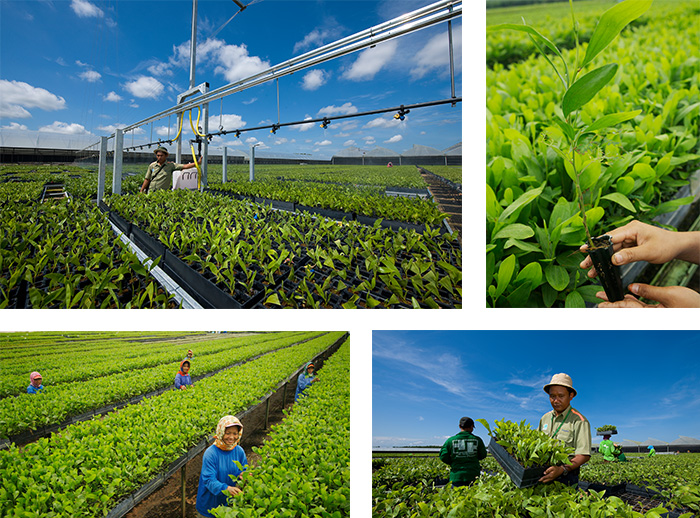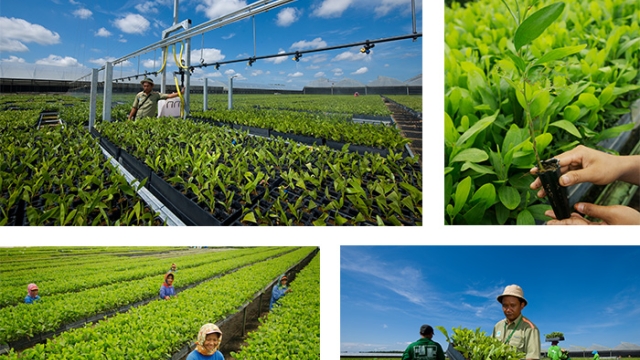In the lush landscapes where history meets contemporary living, plantation-based property management holds a unique allure. With its roots firmly planted in a bygone era, the art of managing and preserving these grand estates continues to captivate both homeowners and enthusiasts alike. Seamlessly blending tradition with modern techniques, plantation-based property management offers a meticulous approach that honors the past while ensuring a vibrant and well-maintained future.
Southwest Ranches Property Management
At its core, plantation property management embodies a deep appreciation for the historical significance and architectural splendor of these timeless estates. Evolving from a rich heritage embedded in the era of large-scale agricultural operations, the management of plantation properties today encompasses a wide range of responsibilities. From maintaining pristine landscapes to preserving historical structures, every aspect of these properties requires a delicate touch and a deep understanding of their legacy.
In revitalizing the tradition of plantation property management, experts have embraced innovative practices to enhance both the aesthetics and functionality of these remarkable properties. By seamlessly integrating modern technology and sustainable practices, managers can strike a harmonious balance between preserving the past and embracing the demands of the present. With cutting-edge irrigation systems, energy-efficient infrastructure, and eco-friendly landscaping techniques, plantation-based property management remains committed to upholding the grandeur of these estates while adapting to the needs of contemporary living.
Whether it’s the meticulous care of sprawling gardens or the preservation of elegant antebellum homes, plantation-based property management proves to be an artform that keeps history alive and thriving. Through the dedicated efforts of skilled professionals, these properties serve as living testaments to the past, allowing generations to come to immerse themselves in a world of refined beauty and cultural heritage. Providing a seamless blend of tradition and innovation, plantation-based property management ensures that these unique pieces of history stand tall, ready to be treasured for years to come.
Historical Significance of Plantation Properties
Plantation based property management holds a rich historical significance that spans across centuries. These properties, often associated with the cultivation of crops such as tobacco, cotton, or sugarcane, played a major role in shaping the economies and societies of many countries. The legacy of plantation properties is deeply intertwined with the history of colonialism, slavery, and the exploitation of labor.
During the peak of the plantation era, these properties were centers of intense agricultural activity, serving as the backbone of economies in regions like the American South, the Caribbean, and parts of Africa. The vast tracts of land dedicated to crop cultivation required meticulous management to ensure optimal productivity. Plantation owners implemented innovative techniques and systems to maximize yields and profits, which ultimately contributed to the overall wealth and development of these regions.
Beyond their economic significance, plantation properties were social and cultural hubs. They represented the power and status of the plantation owners, who often resided in grand mansions surrounded by lush landscapes. These properties witnessed the interaction of diverse social classes, cultures, and traditions, as enslaved laborers, indentured servants, and skilled workers formed complex social structures within the plantation community.
Unfortunately, the historical significance of plantation properties is marred by the dark legacy of slavery. Enslaved African people were cruelly exploited, forced to work long hours under inhumane conditions. Their labor and suffering were essential to the success and prosperity of these plantations. Today, plantation properties serve as reminders of the injustices and human rights abuses of the past, and efforts are being made to acknowledge and reconcile with this painful history.
In conclusion, plantation based property management carries immense historical importance, representing the economic, social, and cultural aspects of past societies. While acknowledging their contributions to agricultural development and regional economies, it is essential to recognize and address the painful history of slavery associated with these properties. By doing so, we can strive for a more inclusive and compassionate approach to preserving and revitalizing plantation properties for future generations.
Challenges in Managing Plantation Properties
Plantation based property management comes with its fair share of challenges. The unique characteristics of plantation properties, combined with the demands of maintaining and preserving the tradition, present a range of complexities for property managers.
Maintaining Historical Authenticity
One of the main challenges in managing plantation properties is the need to strike a balance between preserving the historical authenticity of the property and meeting the modern expectations of visitors. Plantations often have a rich history and cultural significance, making it essential to maintain their unique character and charm. However, this can be a delicate task, as it requires careful restoration and preservation efforts to ensure that the property remains true to its historical roots while still providing a safe and comfortable environment for visitors.
Preservation and Conservation Efforts
Another challenge is the preservation and conservation of the natural surroundings that often accompany plantation properties. Many plantations are known for their sprawling gardens, lush landscapes, and diverse wildlife. Property managers must implement effective conservation measures to protect and sustain these natural assets. This includes maintaining the health and beauty of the gardens, implementing sustainable practices, and ensuring the well-being of the wildlife that call the plantation home.

Balancing Operational and Financial Factors
Lastly, managing plantation properties involves balancing operational and financial factors. Maintaining such properties can be costly, requiring ongoing maintenance, restoration, and staff to cater to visitor needs. Property managers must navigate the challenge of ensuring the financial sustainability of the plantation while striving to provide an exceptional visitor experience. This may involve exploring revenue streams such as guided tours, events, or partnerships to supplement operational costs, all while maintaining the integrity and cultural significance of the property.
In conclusion, plantation based property management presents its own set of challenges. From preserving historical authenticity and ensuring the conservation of natural surroundings to balancing operational and financial considerations, property managers must navigate these complexities to revitalize and preserve the tradition of plantation properties.
Innovative Approaches for Revitalizing Plantation Management
The world of plantation-based property management is witnessing a wave of innovative approaches that are breathing new life into this traditional practice. These methods aim to drive efficiency, sustainability, and profitability, while also honoring the rich history and cultural heritage of plantation estates. In this section, we will explore three such approaches that are revolutionizing plantation management.
Technology Integration: Embracing modern technology is key to revitalizing plantation management. From smart irrigation systems to drone surveillance, technological advancements are helping plantation managers optimize resource allocation and enhance productivity. The integration of data analytics and real-time monitoring allows for proactive decision-making, minimizing operational costs and maximizing yields. By leveraging technology, plantation-based property management can achieve greater precision, improved environmental stewardship, and enhanced overall performance.
Sustainable Land Use Practices: Another critical aspect of revitalizing plantation management is the adoption of sustainable land use practices. Plantation estates play a significant role in the preservation of natural resources and biodiversity. By implementing agroforestry techniques, crop rotation, and integrated pest management, these properties can prioritize soil health, reduce reliance on harmful chemicals, and mitigate environmental impacts. Sustainable land use not only contributes to long-term profitability but also positions the plantation as a responsible and conscientious steward of the land.
Strengthening Community Engagement: A truly revitalized approach to plantation management recognizes the importance of community engagement. Plantations often serve as historical landmarks or cultural attractions, and involving local communities fosters a sense of ownership and pride. Encouraging educational programs, cultural events, and ecotourism initiatives can create mutually beneficial relationships between the plantation and its surrounding communities. By promoting inclusive practices and supporting local economies, plantation-based property management can become a catalyst for social development and cultural preservation.
As plantation-based property management looks towards the future, these innovative approaches provide a foundation for breathing new life into age-old practices. By embracing technology, adopting sustainable land use practices, and engaging with local communities, plantation estates can thrive as sustainable, profitable, and culturally significant assets. The revitalization of plantation management is not just a necessity; it is an opportunity to honor the past while building a better future.
